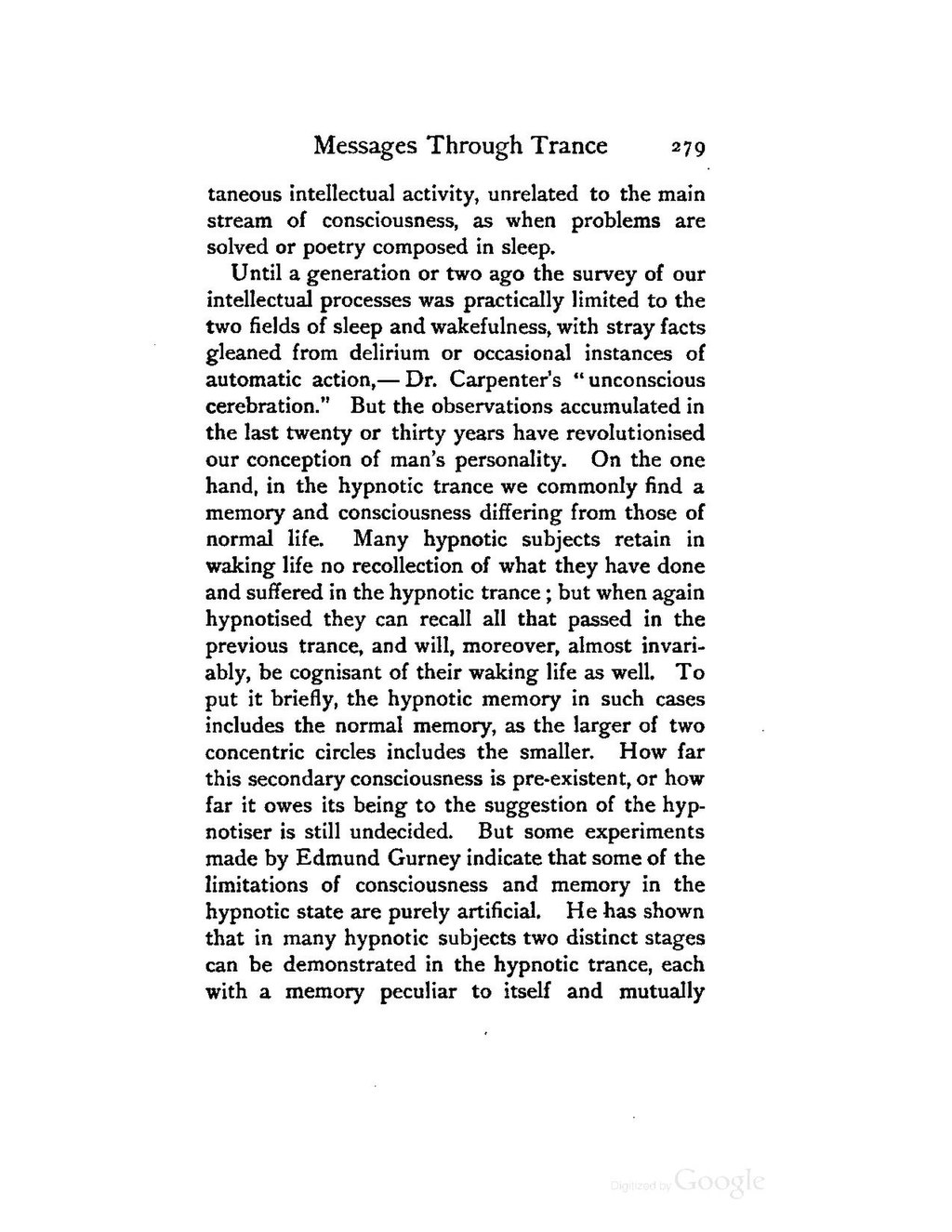taneous intellectual activity, unrelated to the main stream of consciousness, as when problems are solved or poetry composed in sleep.
Until a generation or two ago the survey of our intellectual processes was practically limited to the two fields of sleep and wakefulness, with stray facts gleaned from delirium or occasional instances of automatic action,—Dr. Carpenter's "unconscious cerebration." But the observations accumulated in the last twenty or thirty years have revolutionised our conception of man's personality. On the one hand, in the hypnotic trance we commonly find a memory and consciousness differing from those of normal life. Many hypnotic subjects retain in waking life no recollection of what they have done and suffered in the hypnotic trance; but when again hypnotised they can recall all that passed in the previous trance, and will, moreover, almost invariably, be cognisant of their waking life as well. To put it briefly, the hypnotic memory in such cases includes the normal memory, as the larger of two concentric circles includes the smaller. How far this secondary consciousness is pre-existent, or how far it owes its being to the suggestion of the hypnotiser is still undecided. But some experiments made by Edmund Gurney indicate that some of the limitations of consciousness and memory in the hypnotic state are purely artificial. He has shown that in many hypnotic subjects two distinct stages can be demonstrated in the hypnotic trance, each with a memory peculiar to itself and mutually

